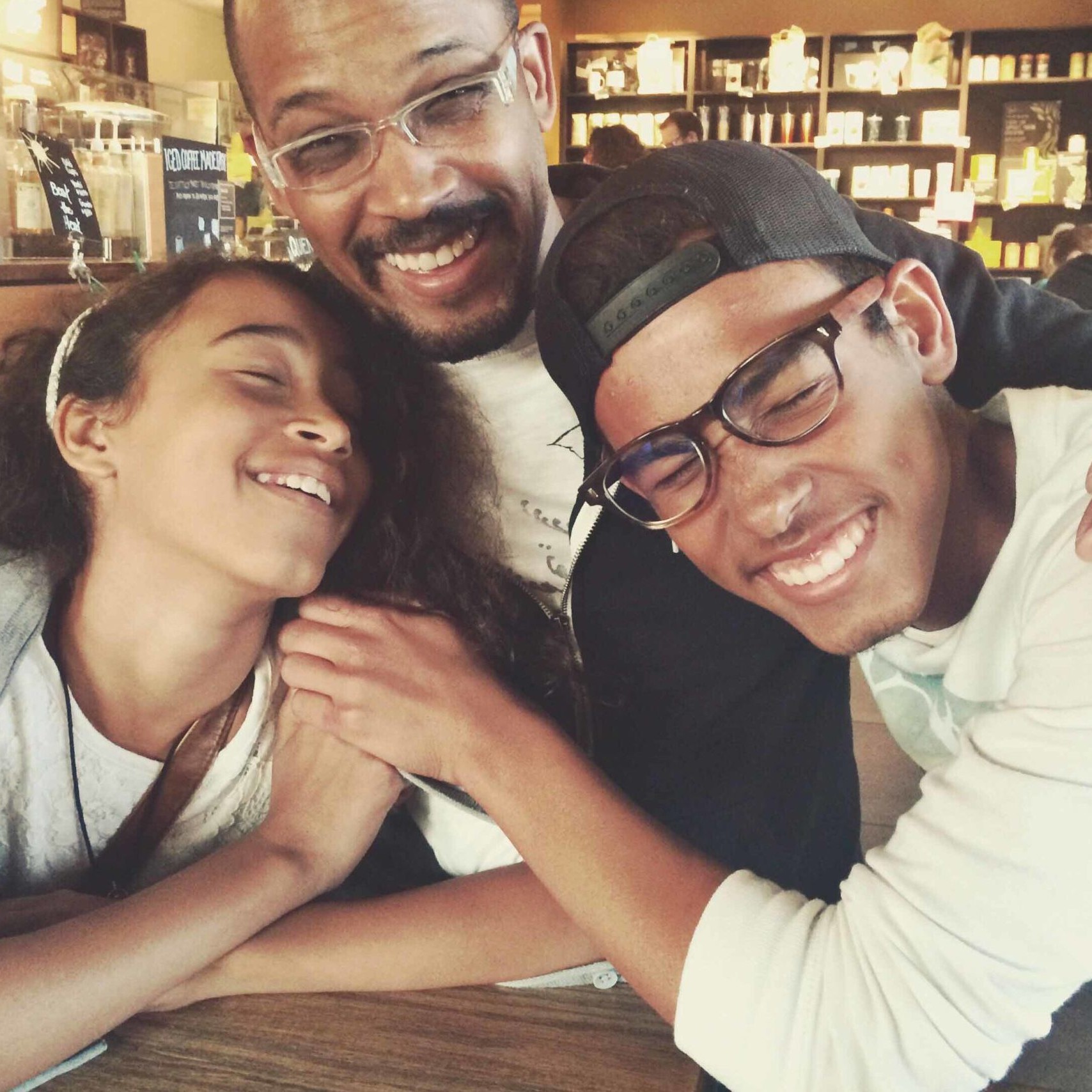There’s no gentle way to say it, divorce is tough. It’s tough on the partners splitting up, but it’s even more difficult for their children.
For spouses, each knows what they have done to contribute to the breakup, but for teens the causes of the divorce might be a mystery or beyond their understanding. Not only do they likely not understand why the divorce is happening, they might also believe they have some level of responsibility.
What if, they may wonder, they had been more obedient or got better grades, or didn’t argue as much? Would their parents still be a couple, living under the same roof?
Guilt is a heavy burden for an adult to carry, but for a teen, it can be crushing, even as they’re expected to show a happy face and remain engaged with their friends, school, and the new duality of being a child of divorce.
I know this firsthand, having gone through a rough divorce almost fifteen years ago. Retrospectively, my ex and I did not handle things very well, letting our own emotions spill over into our parenting. This was worst during the first year, during which time we unsuccessfully tried to create a clean break in our personal lives, finances, and parental responsibilities.
However, our children might have had it the worst, as they’re just starting to learn about relationships themselves. Teens are watching their parents to see what healthy relationships look like. We did our best, but it was sometimes a harsh lesson
This begs the question: How can parents ease the impact of divorce on our teens and maintain a connection with them during what is an extremely difficult time for everyone?
LISTEN TO THEIR PERSPECTIVES
Addressing their feelings about divorce is something that’s important at any age, and there are books and counseling available to help. Sometimes just being open to listening to all their thoughts — the potential sadness, anger, and confusion — can be enough, but our kids at various times worked with therapists too.
Forward Together Tip: A key way that teens say that they feel cared for, is when the adults in their lives make the time to really listen. The more opportunities you can find to really listen to your teen, the more likely they are to come to you to talk about important challenges as they grow. Find our good listening tips here. Or perhaps, considering therapy may work better for your family. Hear from a clinical social worker on how to seek help from a therapist for your teen.
PRIORITIZE ONE-ON-ONE TIME
In terms of our living arrangement, there are lots of common dual household schedules that divorce attorneys and counselors encouraged, all based on the idea that the children move between domiciles, splitting their world in two.
What we realized very quickly was that our children hated switching houses. We eventually landed on a schedule that had them move between houses in a staggered fashion, rather than as a collective group.
I rotated having one child spend an extra day at my house (sometimes by the other two going back to their mother’s house early). My goal was to have “solo time” where I could really focus on that child. Eventually, that also grew into annual single-child holidays, particularly beneficial when their maturation levels were so dramatically different.
Too often, divorced parents end up interacting with their children as a pack, which makes it exceptionally difficult to really get to know each of them as unique individuals, especially at their critical age as teens.
As they get older and are pulled into school activities and their own social lives, it’s even more important to prioritize that one-on-one time, which was exactly the benefit of our rather unusual schedule.
Forward Together Tip: The one-on-one time you have with your teen becomes critical as you work through scheduling with your co-parent. Taking the time to build strong connections is critical for your teen, especially as you work together through this especially difficult situation. Here are five ways we recommend helping your teen cope with the challenging emotions they are faced with.
WORK THROUGH CHALLENGES WITH A TRUSTED CONTACT
What I learned from books by experts and from talks with fellow divorcing parents was that having emotional support and a healthy outlet for the unexpected waves of emotion are critical.
It’s okay to get upset, and perhaps even angry at your ex. But it’s the job of another adult, therapist, spiritual advisor, or friend, to help you work through these challenges, not your teen’s
My personal journey in this regard included joining two different group therapy programs, one focused on the journey of divorce and another focused on managing the anger and frustration I felt in those first few years.
My goal was always to move beyond the first of my divorce emotions because, frankly, they were awful. And how did they impact my children? I am perhaps fortunate that they tell me they don’t have many memories of that first post-divorce year. It wasn’t pretty.
Forward Together Tip: It’s especially important to take care of yourself and model healthy coping strategies as your family navigates this difficult transition. To make sure you are teaching your teen healthy behaviors while also maintaining your own wellbeing, find a few of our ideas here.
TRY KEEPING A SENSE OF HUMOR
Oh, and one final bit of advice: Try to keep a sense of humor about things.
It’s easy to slide into a mindset where everything that happens is so important, but having your teen yell at you isn’t always cause for World War III, especially as they navigate their own emotions.
Laughter is also a tremendous tool for diffusing tense situations too. When your teen is feeling angry or frustrated about something you’ve done, laugh at the situation and you’ll be surprised how often they’ll join in on that unexpected and de-escalating behavior.
If nothing else, it helps them recognize you value their experience and prioritize more than conformance with your rules.
Most of all, good luck. Divorce is very difficult, and you’re going to be on a roller coaster of emotions and experiences, both with your ex-spouse and your teens.
Take a deep breath, buckle up, and focus on creating the most positive experience possible for them while remembering to give yourself permission to grieve and nurture yourself too.
Parenting Through Divorce
It’s rarely the intention of parents to separate or divorce, but it is the current reality that about 12% of Coloradoan families will face divorce. We’ve collected some other actionable tips from the American Academy of Pediatrics if you find yourself going through the difficult journey of parenting through a divorce:
- Talk openly and honestly early and often: Check out our tips on starting potentially difficult conversations with your teen
- Reach out to other adults in your circle: Other family members, friends, and neighbors can be great outlets of support for both you and for your teen. Reach out to their coaches, parents of their friends or other adults they may have trust in for additional support they can rely on.
- Respect the relationship between your teen and your co-parent: It’s super important to help your teen maintain connection by ensuring they can establish their own relationship with your previous spouse and co-parent. Keep criticisms and potential arguments away from your teen whenever possible.
- Be aware of your teen’s potential reactions: While dealing with this new transition, teens may display the following behaviors:
- Become aggressive or angry
- Engage in risky behaviors such as substance use
- Try to adjust to a more adult roles and responsibilities
- Worry about money
- Worry they may be the cause of the separation or divorce
- Have problems eating or sleeping
- Experience feelings of depression
- Withdraw emotionally from family or friends
Keep an eye out and monitor these feelings if they come up, and check out our mental health resources for teens.
Dave Taylor
Dave Taylor writes about his experiences as a single dad with three great kids, 26, 22, and 19, and his occasionally tenuous grip on sanity. He's pretty sure they're related. Based in Boulder, Colorado he is also on the faculty at the University of Denver, a YouTuber, a consumer electronics expert, and a film critic. You can find him online at PlanetDave.com or on just about every social network. Except for TikTok. He doesn't do TikTok, to his children's great relief!



